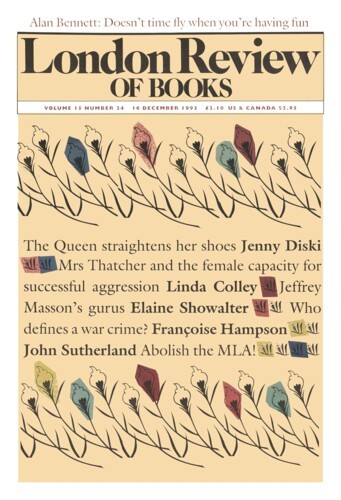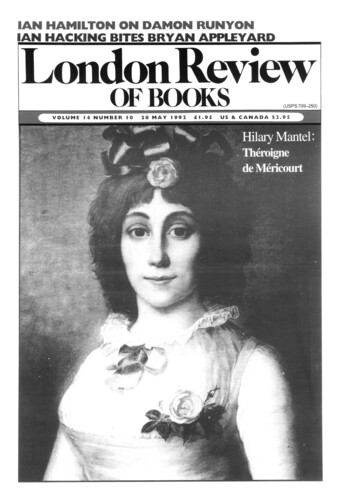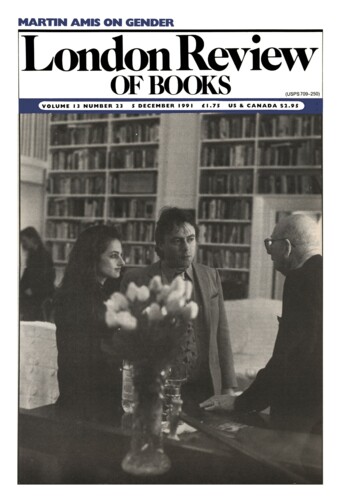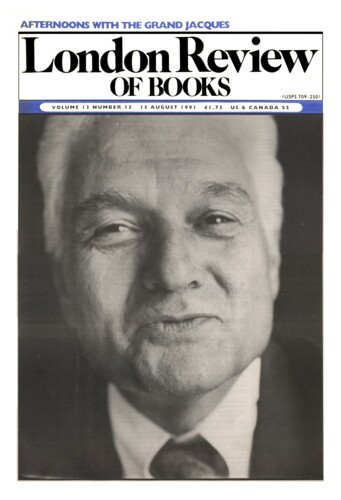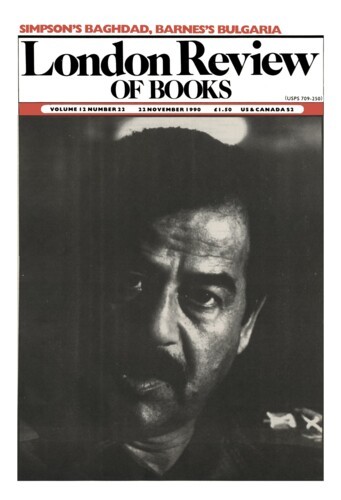Diary: Laos awakens
Victor Mallet, 16 December 1993
There was so much ‘secret’ bombing of Xieng Khouang province in northern Laos that even the pigpens in remote hill-tribe villages are made of American cluster-bomb casings. Villagers bring out American parachutes for marriages and other festivals and unfurl them to make marquees for the guests. I’ve seen sturdy metal bomb casings being used as pillars to support houses and rice granaries, as window-boxes for flowers and vegetables, and as troughs for animal feed. Planted in rows, they become fences. The damage that the bombs inflicted is visible too: in the craters splattered over the Plain of Jars – the ‘jars’ are mysterious stone urns thought to date back more than a thousand years – and in the roadside piles of twisted metal waiting to be sold as scrap.’
